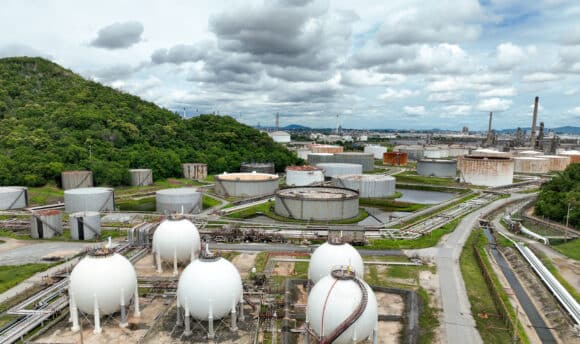Fifty years after the insurance industry first warned about the impact of climate change, it is continuing to fuel the climate emergency.
Today, the international Insure Our Future coalition launched its seventh annual insurance scorecard, analyzing 30 leading global insurers on their fossil fuel and climate policies.
It finds insurers are not doing nearly enough. So much so that Insure Our Future left the first three rankings of their scorecard blank as a symbol of the insurance industry’s failure.
The scorecard finds that the executives of insurance companies have been aware of the risks that climate change poses for the last 50 years.
Connecticut’s own W. R. Berkley is ranked one of the ten worst individual insurers.
Demonstrators will also gather in Hartford on Friday (11/10) to call on the Travelers, another top fossil fuel insurer, to change its policies.
“Connecticut communities face rapidly increasing climate impacts, including severe weather, flooding, wildfire smoke, and droughts. Our flagship industry is in a powerful position to support and accelerate the global transition from fossil fuels to clean technologies – yet they continue instead to provide significant support to climate-destroying oil and gas operations.”
The Insure Our Future report reveals that many insurers continue to support projects to increase oil and gas production, even as the world’s leading climate scientists warn of impending disaster.
The Intergovernmental Panel on Climate Change and experts at the International Energy Agency agree that our current level of fossil fuel production is incompatible with the 1.5°C Paris climate target. No insurer currently has policies that are aligned with this target.
“The insurance industry first warned about climate risks in 1973, and these have now become a grim reality, particularly for low-income countries and communities which have contributed least to the climate emergency. Insurance companies are now abandoning customers affected by climate risks, yet they continue to fuel the climate crisis by underwriting and investing in the expansion of fossil fuels."
“For insurance companies to show they take climate science seriously, they must fully align their underwriting and investment strategies with a credible 1.5°C pathway and end all support for increased fossil fuel production,” Bosshard continued. “They should be suing fossil fuel companies, to make polluters pay for the growing costs of climate disasters and keep insurance affordable for climate-affected communities, not investing in them.”
Read the full global press release here.
Efforts to hold the insurance industry accountable are taking place in the streets of Hartford and other cities as well as in the halls of Congress. Climate-concerned citizens have rallied at individual insurance companies and industry events. The Senate Budget Committee just launched its SECOND investigation into the industry, this time questioning the climate-driven insurance unaffordability crisis.
This investigation builds on an earlier inquisition on the U.S. insurance industry’s actions to invest and underwrite fossil fuel expansion projects that drive the climate crisis. This additional inquiry from federal lawmakers levels up the scrutiny and attention on insurers—surely making them feel the heat.
Fossil fuel insurance earned the industry around $21.25 billion in 2022, according to research commissioned for the report from Insuramore, a respected market intelligence firm in the insurance sector.



